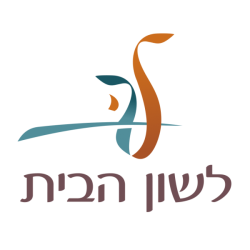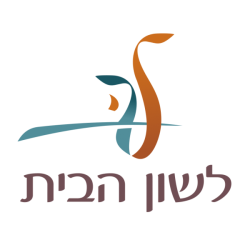Aliya to Israel

The Preservation of Jewish Languages and Cultures in memory of Hayyim (Marani) Trabelsy



Beja is the town of wheat and barley and chickpeas and fava beans, they used to grow them as in the moshav. At the time of harvest, they harvested the wheat, at the time of olives, of chickpeas, of fava beans. The town of wealth, [with] lots of greens. Everyone […]? This is called fīrma, fīrma [“company”] in our Arabic dialect, in Beja they called it fīrma. The Jews were… well, how much I remember when I was a kid, the time of war, I was 7 when the Germans occupied our country. In Beja, there was the Zākīmi family, the Tūbyāna, the Bellītyu, the Levi, they were cohens. Therewa a synagogue, of the sons of Levi, they had their own synagogue. We had the synagogue of Rabbi Tsʕūži, the synagogue of the Ribāṭ, the synagogue of ʕeyn əš-šemš, we had four synagogues in Beja. Plus the synagogue of Rabbi Frāži, this was after Rabbi Frāži šaʕwāt, a great Rabbi and…
The great Rabbis of Tunisia, the Rabbis of Tunisia, I had a prayer book in which there were the names of all the Rabbis of Beja. Of Beja, Gabes, Sousse and Djerba. Great Rabbis brought us here. Rabbi ḥayyīm əl-Fāsi, Rabbi ḥayyīm Abū Ržel, Rabbi ḥayyīm Bəlʕīš, Rabbi ḥayyīm aḍ-ḍemri. Each one with his town, and where each one came from. In our area there was Beja, then Sūq lə-Khmīs, then Sūq əl-Arbaʕ, ʕAyn Drāhəm, ʕAyn Sulṭān, then the Algerian border. Small towns, Beja was a small town, Sūq lə-Xmīs was a small town, Sūq əl-Arbaʕ. There were Jews of course, there were not many Jews, in Beja there were 40 or 50 families. In Sūq lə-Khmīs 10 or 15 families, in Sūq əl-Arbaʕ 20 families. From Beja to Sūq lə-Khmīs there are approximately 30 km, from Sūq lə-Khmīs to Sūq əl-Arbaʕ 20, from Sūq əl-Arbaʕ 20 to ʕAyn Drāhəm 30. ʕAyn Drāhəm, this town, was a town where people used to come, from France, from the US, because there were trees.
The Gurnīa were, they used to call them Gurnīa, because in Tunisia, there were the first Tunisians who came, and they had their first Jews and their Rabbinate. When the Gurnīa came, they did not decree for them to enter. These were the Gurnia, which means from Livorno. We, no, in Beja there were only, certainly, all the Jews of Beja came from Gabes, yes. There were also those Levi and Bellīti who came from the capital. Because Beja was the town of wealth, there were all kinds of jobs, in the winter, in the summer and the spring. There was work all year long. People were good-looking, wealthy, everyone with their possessions, all hard-working, all G-d fearing. There were synagogues and schools where we used to study, and the heder where we used to study with the Rabbis. Our Rabbi was a member of our family, his name was Rabbi ḥayyīm Dīʕi, may his memory be a blessing. He passed away in Safad, and he had his nephew and his daughter, Yōsef Lalūš.
Trancription by Prof. Luca D’Anna – Università degli Studi di Napoli “L’Orientale”
Bēža blǟd əl-qamməḥ u-š-šʕīr u-l-ḥomməṣ u-l-fūl, yexdmu fē-ha kīf əl-mōšāv. waqxt lə-ḥṣād yaḥsdu l-qaməḥ, waqxt əz-zītūn, waqxt əl-ḥomməṣ, waqxt əl-fūl. blād əl-xīr xḍūr yāsər fē-ha. kol exad šlū? ādi tətsamma fīrma, fīrma, bə-l-ʕarbi mtāʕ-na fī Bēža isammīw-a fīrma. əl-yehūd kānu, āz kam ənfakkər ǟna waqxt kənt zġīr ǟna waqxt əl-gīrra, kān ʕumr-i sebʕ snīn waqxt əl-almān kammlū l-blǟd mtāʕ-na.
fī Bēža kānu temma mišpaḥat Zākīmi, mišpaḥat Tūbyāna,mišpaḥat Bəllītyu, mišpaḥat Līvi, koānīm kānu. kān temma ṣlā, tāʕ awlād Līvi uḥāda, kānt ʕand-əm ṣ-ṣlā mtāḥ-ḥəm wāḥəd. kānt ʕand-na ṣlāt rabbi Tsʕūži u-ṣlāt əṛ-ṛbāt, u-ṣlāt ʕeyn əš-šemš, arbaʕ ṣlāwāt kānu ʕand-na fī Bǟža. u-ṣlāt rəbbi Frāži, ze ʕala ism rəbbi Frāži šaʕwāt, rabbi kəbīr u… rabbānīm lə-kbār barr Tūnəs, rabbānīm mtāʕ barr Tūnəs, kān ʕand-i ṣədūr fī- l-əsāmi mtāʕ əl-rabbānīm əl-kull mtāʕ Bǟža. mtāʕ Bǟža u-mtāʕ Gābəs u-mtāʕ Sūsa mtāʕ žerba. Rabbānīm kbār xarržū-na lə-nǟ. Rabbi ḥayyīm əl-Fāsi, Rabbi ḥayyīm Abū Ržel, Rabbi ḥayyīm Bəlʕīš, Rabbi ḥayyīm aḍ-ḍemri. kull wāḥəd u-l-blēd mtāʕ-u, u-kull wāḥəd mənnēn žā. əl-blād mtāʕ-na kān temma Bāža, u-m-baʕd Sūq lə-xmīs, Sūq l-arbaʕ, u-ʕeyn Drām, u-ʕeyn Sulṭān, u-m-baʕd la frontier alžeryen, lə-ḥdūd mtāʕ l-alžerī. bəldān zġār, Bǟža blād zġīra, Sūqx lə-xmīs blād zġīra, sūqx əl-arbaʕ. fē-a yeūd bētəḥ, mā-fi-yā-š barša yeūd, Bǟža fē-a, rā-w arbʕīn fāmīlya, xamsīn fāmīlya, Sūqx lə-xmīs, ʕašər, xaməstāšən fāmīlya, Sūqx əl-arbaʕ ʕašrīn fāmīlya. kǟn, bə-l-blǟd əl-blǟd temma taqrīb mə-l-Bǟža lə-Sūqx lə-xmīs temma taqrīb tlātīn kīlōmētər, u-mən Sūqx lə-xmīs lə-Sūqx l-arbaʕ temma ʕašrīn, u-mən Sūqx əl-arbaʕ lə-ʕeyn Drām temma tlātīn. ʕeyn dram, ādi l-blǟd, blǟd ižīw fē-a n-nǟs, yedxal-l-u mə-l-frānsa u mə-l-… mə-l-āmērīk ēh xāṭər fē-a sužrāt.
žmāʕt Gurnīa kǟnu, isammīw-m Gurnīa umma, xāṭər fī Tūnəs, kānu temma t-twānsa l-owlānīn əlli žāw, u-kānt ʕand-əm əl-ḥəbrān mtāḥ-ḥəm l-awlāniyya u-kān ʕand-əm ər-rabbanūt mtāʕ-əm. waqxt žāw əl-Gurnīa, mā-ʕamlū-š qānūn yedxlu. Ādu Gurnīa ze mə Līvorni […]. anaḥnu, lā fi Bǟža temma kān əl… bə-derəx xlāl, əl-Bāžiyya kull-əm umma žǟw mə-l-Gābəs, ken. u-temma ādūk əl-Lēvi u-Bellīti, žāw mə-l-, mə-l-kāpītāl tāʕ Tūnəs. xāṭər ādi Bǟža, blād əl-xīr,u-fē-a kull še xedma, fi š-štā u-fi ṣ-ṣīf u-fi r-rbīʕ. fē-a xedma, l-ʕām kull-u. ən-nās xatīq, kull-əm lā bās ʕalē-əm, kull wāḥəd lə-ḥwāyž mtāʕ-u, kull-əm xaddāmīn, u-temma xūf rabb-i, kān temma ṣlāwāt u-kān temma l-kuttāb əntʕallmu fī-, u-l-ḥēdər nətʕallmu fī- ʕand rabbānīm. kān ər-rəbbi mtāʕ-na wāḥəd mən fāmīlya tāʕ-na… əsm-u rəbbi ḥayyīm Dīʕi zixrōn-o li-vraxā u-neftara fi Tsfāt, u-ʕand-u nexed mtāʕ-u w-əl-bənt-u, Yōsef Lalūš.
Transcription by Prof. Luca D’Anna – Università degli Studi di Napoli “L’Orientale”

There in Khoms, we used to study in Italian. At eight o’clock we would go to school and study until twelve. At twelve, we would go home and have lunch, and at two we used to go to the synagogue to study with Rabbi Frīža Zwārəz, who used to teach us. There were approximately two hundred pupils studying the Torah, the hymns and everything. He taught us, he also used to hit us, with the thing, the stick. He used to say to me like this, take a chalk and go the thing, the blackboard. Write paōlē-xa [your deeds]; I would write it with a wāw, and he would take my head and bang it on the blackboard until it swelled. He said: “Paōlē-xa has the shewa kamats, not the holam!” Do you understand? So, we learned a lot of grammar, I came here to Israel and I was terrific in grammar, everybody was scared of me. I used to say to them: “Listen, don’t we say that everyone who keeps the Shabbat, the Shabbat will keep him?” Here we learned until we grew up, while girls until they were twelve, twelve years was enough, they no longer went to the synagogue. They stayed home, and every girl stayed, stayed with her mother until she grew up, she would not leave the house, how did they call her? Guarded, they would call her guarded, that is locked.
Kənna fī l-Xomṣ gādīk, tʕallemna bə-ṭ-ṭəlyāni. s-sāʕa, s-sāʕa tmānya nəmšīw lə-s-, lə-s-, bē… skōla, netʕallmu, ḥatta li-s-sāʕa ṭnāš, s-sāʕa ṭnāš nrawwḥu netġaddāw, u-s-sāʕa tnēn nemšīw bēt knessət netʕallmu ʕand rəbbi Frīža Zwārəz, yəʕalləm fī-na, təmma ġādi be-erex matāym yəlādīm nətʕallmu, nətʕallmu lə-gmāra wə-nətʕallmu əl-pəyyūtīm wə- nətʕallmu əl-kull šey. ʕalləmna, yəḍrab əl-na, yəḍrab-na bə-l-wāḥda, bə-l-, bə-l-fəl bə-l-ʕōd, bə-l-fəllāxa. u-yəxūl-l-ək kax, xū, xūd gīr w-emši lə lə-l-wāḥda əl-kull… əl-lūḥ. ektəb, paōlē-xa, āna nektəb bə-l-wāw, ūwa yāxəd-ni rās-i wə wə yəḍrab-na fī l-lūḥ ḥatta tnaffəx… rās-i tenfax. yexūl l-i paōlē-xa šəwa kamāts ve-lō xōlām. fhem-ni? az tʕallemna bə-dikdūk b-zāyəd, žīt hnāya fi Israēl bə-dikdūk xarīf bə-d-dikdūk, kullam mefaxxdīm məmm-i. āna nqūl-l-əm əsmʕu: mūš nqūlu kol a-šōmer šabbāt a-šabbāt šōmert ōt-o, a-šabbāt mšammratt-u. ḥnān tʕallemna ḥatta kbarna, wə-l-bnāt wuṣlu ḥatta lə-ṭ-ṭnāš, ʕmər ṭnāšəl ʕām u-xalāṣ mā-ʕā-š žāw lə-bēt… qaʕdu fī l-ḥōš, u-kull bənt hīya teqʕad, zaʕma teqʕad ḥda əmm-a ḥatta tekbar, u-mā-təṭlaʕ-š mə-l-ḥōš, še yəqūlū-l-a wāḥda? maḥžūba, maḥžūba ōmrīm maḥžūba zē sgūra.
Transcription by: Prof. Luca D’Anna – Università degli Studi di Napoli “L’Orientale”





